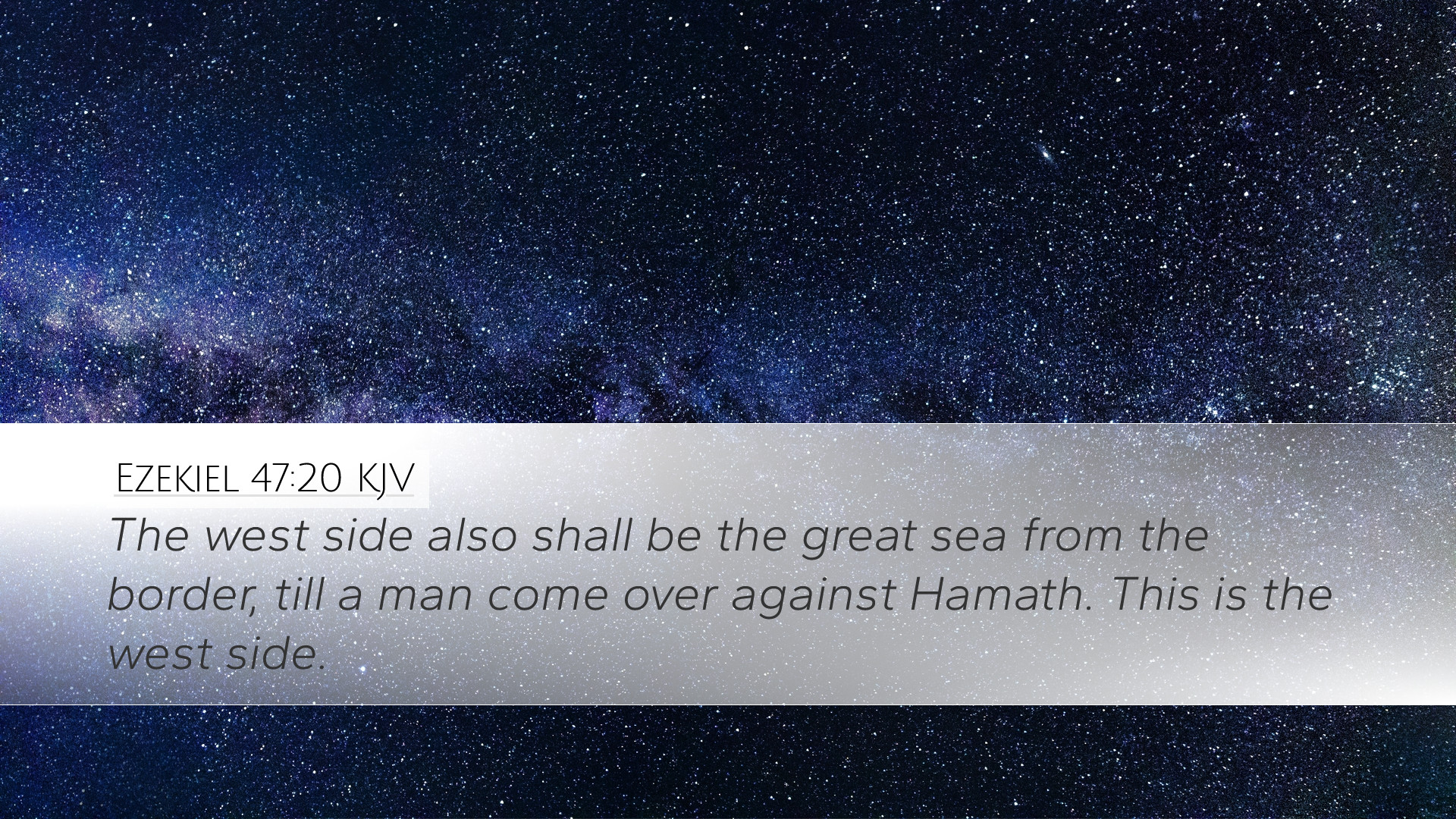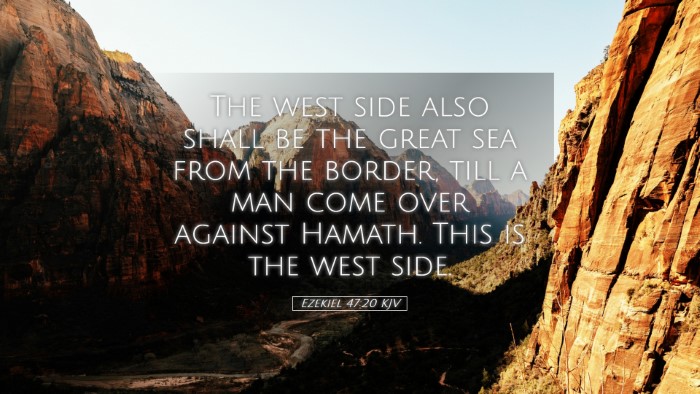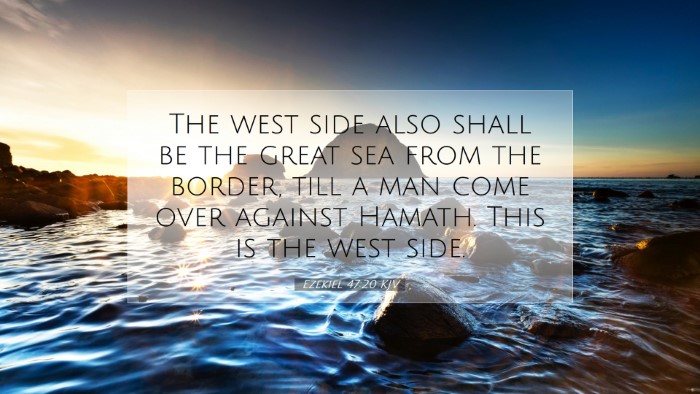Ezekiel 47:20 - A Commentary
Verse: Ezekiel 47:20 - "The west side also shall be the great sea, from the border till a man come over against Hamath. This is the west side."
Contextual Overview
The passage from Ezekiel comes from a prophetic vision concerning the restoration of Israel and the future Temple. Most notably, Ezekiel’s vision entails the measurements of land allotted to the tribes of Israel and how they will be organized. This verse deals specifically with the boundaries of Israel, emphasizing the territory adjacent to the Great Sea (Mediterranean Sea). Understanding these geographical markers is essential for appreciating God’s promise of a restored homeland.
Insights from Matthew Henry
Matthew Henry notes that the delineation of boundaries is significant in establishing the secure dwelling of the people of Israel. The west side, facing the Great Sea, serves as a formidable reminder of God’s sovereignty over the nations. The sea represents both danger and protection; it is a border that provides a natural defense while also presenting challenges.
- Symbolism of the Sea: In Biblical terms, the sea often symbolizes chaos and turmoil, yet it also represents God’s power over creation. The westward orientation towards the Mediterranean can reveal God's providence where they might interact with the world.
- Identity and Land Restoration: Henry emphasizes that this allocation of land is not merely physical but profoundly spiritual. It signifies the restoration of identity and community for the displaced people of Israel.
Insights from Albert Barnes
According to Albert Barnes, this verse provides clarity on the geopolitical boundaries that define Israel's future territory. He stresses the importance of these borders in the fulfillment of God’s promises to Abraham, Isaac, and Jacob. Barnes highlights the implications of this promise, noting that it represents God’s enduring faithfulness to His covenant people.
- Historical Context: The mention of Hamath is critical; it was a significant city in northern Israel known for its opposition to Israel’s territorial expansions in history. Thus, it serves as a vital marker for both the promise and the challenges facing the Israelites.
- Covenant Assurance: Barnes argues that these boundaries are part of God’s blessing, showcasing His intention to restore His people to their rightful possession, thus fostering hope amid their exilic despair.
Insights from Adam Clarke
Adam Clarke discusses the intricate details regarding the expansiveness of the land and the mention of various geographical landmarks. Clarke emphasizes the precision used in outlining these territories, as they depict God’s intended provision for His people.
- Mystical Implications: Clarke indicates that the geographical references may hold deeper, spiritual meanings. The Great Sea could symbolize eternal life and the unbinding capabilities of God’s presence.
- Hope for the Future: The detailed description in this chapter calls for faith and patience among the exiles. The assurance of land restoration mirrors the promise of spiritual restoration as well.
Theological Themes
The theological implications of Ezekiel 47:20 are manifold, allowing for a deeper engagement with its richness:
- Divine Sovereignty: The precise mapping of boundaries reinforces the sovereignty of God over creation and history. It underlines that His plans will not be thwarted.
- Restoration and Hope: This passage heralds the message of hope for a people in despair. It reinforces the theme of restoration not just in physical terms but also in spiritual rejuvenation and identity renewal.
- Promise Fulfillment: The mention of geographical landmarks signifies the fulfillment of God’s ancient promises, assuring the people that God has not forgotten them.
Applications for Today
For pastors, students, theologians, and scholars, the rich context of Ezekiel 47:20 holds various applications:
- Encouragement in Restoration: Just as Israel looked forward to physical restoration, modern believers are reminded of God’s ongoing work in restoring and redeeming lives.
- Understanding Heritage: The importance of recognizing and understanding one’s spiritual heritage can lead to a more profound gratitude and responsibility towards God’s promises.
- Commitment to God’s Plan: The emphasis on boundaries serves as a metaphor for the necessity of commitment to the path God lays out and the importance of proper stewardship of His promises.
Conclusion
Ezekiel 47:20 transcends its geographical references to embody profound theological insights on God's faithfulness, the importance of hope, and the restorative power of divine promises. The contributions from Matthew Henry, Albert Barnes, and Adam Clarke highlight these themes, reminding contemporary believers of the Almighty's unwavering commitment to His covenant and their role in His unfolding story.


